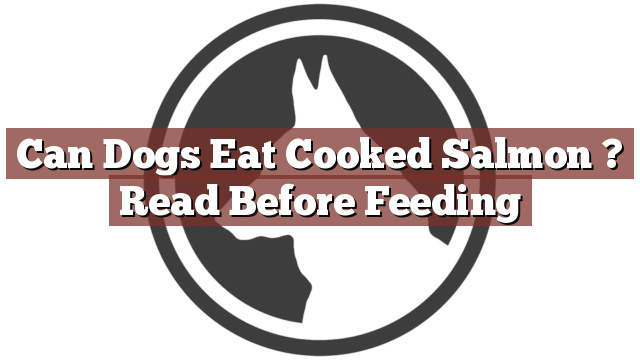Understanding Your Dog’s Dietary Needs
As pet owners, it is important to understand our dog’s dietary needs to ensure their overall health and well-being. Dogs are primarily carnivorous animals, which means their bodies are designed to eat meat. They require a balanced diet that includes proteins, fats, carbohydrates, vitamins, and minerals. While dogs can consume a variety of foods, it is crucial to be aware of what is safe for them to eat and what can potentially harm them. One common question that arises is, "Can dogs eat cooked salmon?"
Can Dogs Eat Cooked Salmon? Read Before Feeding
The answer to the question "Can dogs eat cooked salmon?" is yes, but with some caution. Salmon is a great source of protein and omega-3 fatty acids, which can provide numerous health benefits to your dog. However, there are a few important factors to consider before feeding your furry friend cooked salmon. Firstly, it is crucial to ensure that the salmon is fully cooked, as raw or undercooked salmon can contain harmful bacteria and parasites that may cause digestive issues. Secondly, it is important to remove any bones from the salmon before feeding it to your dog, as they can pose a choking hazard.
Pros and Cons of Feeding Cooked Salmon to Your Dog
Feeding your dog cooked salmon can have both pros and cons. On the positive side, cooked salmon is a great source of lean protein, which can help support muscle development and repair. The omega-3 fatty acids found in salmon can also contribute to a healthy coat and skin. Additionally, these fatty acids have anti-inflammatory properties that may benefit dogs with conditions such as arthritis or allergies. However, it is important to keep in mind that while cooked salmon can be a healthy addition to your dog’s diet, it should not be the main source of their nutrition. It is still essential to provide them with a balanced diet that includes other nutrients from sources such as high-quality dog food.
Conclusion: Make an Informed Decision for Your Dog’s Health
In conclusion, while it is safe for dogs to eat cooked salmon, it is important to do so in moderation and with precaution. Ensure that the salmon is fully cooked and free of bones, and consider it as an occasional treat rather than a regular part of their diet. Always consult with your veterinarian before introducing any new foods to your dog’s diet, especially if they have any existing health conditions or dietary restrictions. By making informed decisions and prioritizing your dog’s health, you can provide them with a well-rounded diet that meets their nutritional needs.
Thank you for taking the time to read through our exploration of [page_title]. As every dog lover knows, our furry friends have unique dietary needs and responses, often varying from one canine to another. This is why it's paramount to approach any changes in their diet with caution and knowledge.
Before introducing any new treats or making alterations to your dog's diet based on our insights, it's crucial to consult with a veterinarian about [page_title]. Their expertise ensures that the choices you make are well-suited to your particular pet's health and well-being.
Even seemingly harmless foods can sometimes lead to allergic reactions or digestive issues, which is why monitoring your dog after introducing any new food item is essential.
The content provided here on [page_title] is crafted with care, thorough research, and a genuine love for dogs. Nevertheless, it serves as a general guideline and should not be considered a substitute for professional veterinary advice.
Always prioritize the expert insights of your veterinarian, and remember that the health and happiness of your furry companion come first.
May your journey with your pet continue to be filled with joy, love, and safe culinary adventures. Happy reading, and even happier snacking for your canine friend!

